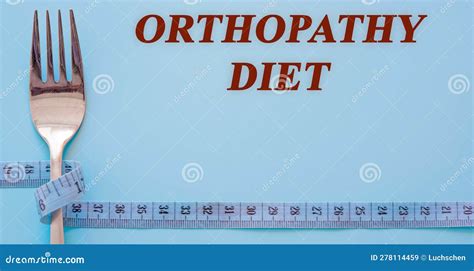Discover the benefits of an alkaline diet, tips for following it, and the best foods to include for maintaining pH balance. Find out more!
What is Alkaline Diet?
Contents
An alkaline diet is a dietary approach that emphasizes the consumption of foods that have an alkalizing effect on the body. This means that the diet focuses on foods that have a pH level of above 7.0, which is considered to be alkaline. The premise behind the diet is that by eating a higher proportion of alkaline-forming foods, the body’s pH level becomes more alkaline, which is believed to have several health benefits.
Proponents of the alkaline diet claim that it can help prevent certain health conditions such as osteoporosis, arthritis, and even cancer. The diet typically involves consuming a large amount of fruits, vegetables, nuts, and seeds while reducing the intake of acidic foods such as meat, dairy, and processed foods. The idea is to create a more alkaline environment within the body, which is thought to promote overall health and well-being.
It is important to note that while the alkaline diet has gained popularity in recent years, there is limited scientific evidence to support its claims. Many health experts argue that the body is capable of regulating its pH level on its own, and that the foods we eat have minimal impact on this balance. However, there is no denying the potential health benefits of consuming a diet that is rich in fruits and vegetables, which are staples of the alkaline diet.
In conclusion, the alkaline diet is a dietary approach that focuses on consuming foods that have an alkalizing effect on the body. While its health claims are not fully supported by scientific evidence, the diet encourages the consumption of fruits, vegetables, and other healthy foods, which can have positive effects on overall health. Whether or not the alkaline diet truly has the health benefits it claims, it is clear that including more alkaline-forming foods in our diet can have a positive impact on our well-being.
Understanding pH Balance
The pH balance refers to the level of acidity or alkalinity in the body. Understanding the pH balance is crucial for maintaining overall health and well-being. The pH scale ranges from 0 to 14, with 7 being neutral. Anything below 7 is considered acidic, while anything above 7 is alkaline. The human body functions best when the pH level is slightly alkaline, around 7.4. When the pH level becomes too acidic or too alkaline, it can lead to a variety of health issues.
It is essential to maintain a balanced pH level in the body to support optimal health. An acidic pH level can lead to inflammation, digestive problems, and a weakened immune system, while an alkaline pH level is believed to reduce the risk of chronic diseases and promote overall vitality. By understanding the pH balance and taking steps to keep it within the appropriate range, individuals can support their health and well-being.
One way to support a healthy pH balance is through diet. Consuming a diet rich in alkaline-forming foods such as fruits, vegetables, nuts, and legumes can help to promote a slightly alkaline environment in the body. On the other hand, diets high in processed foods, sugar, and animal products tend to be acidic and can disrupt the pH balance. By making conscious choices about the foods we consume, we can influence the pH balance in our bodies.
Along with diet, other lifestyle factors can also impact the pH balance. Stress, lack of exercise, and exposure to environmental toxins can all contribute to an acidic environment in the body. Engaging in stress-reducing activities, staying physically active, and minimizing exposure to toxins can all play a role in maintaining a healthy pH balance. By understanding the pH balance and taking steps to support it, individuals can optimize their health and well-being.
Benefits of Alkaline Diet
Benefits of Alkaline Diet
The alkaline diet is based on the theory that certain foods can affect the acidity and alkalinity of bodily fluids, including urine and blood. Proponents of this diet believe that by consuming alkaline-forming foods and avoiding acid-forming foods, you can help maintain the body’s optimal pH levels, which can result in a range of health benefits.
One of the main benefits of following an alkaline diet is that it may help prevent and manage certain chronic diseases. Studies have suggested that a diet high in acid-forming foods may contribute to conditions such as osteoporosis and kidney stones. By focusing on alkaline-forming foods such as fruits and vegetables, you may be able to lower your risk of developing these health issues.
In addition, the alkaline diet is often lauded for its potential to boost energy levels and improve athletic performance. Some athletes believe that by including a higher proportion of alkaline-forming foods in their diet, they can reduce post-exercise fatigue and enhance their overall physical performance. This is due to the theory that alkaline foods can help neutralize the lactic acid that is produced during intense physical activity.
Moreover, the alkaline diet emphasizes the consumption of whole, nutrient-dense foods that are rich in vitamins, minerals, and antioxidants. This can improve your overall health and well-being, and may help reduce your risk of developing heart disease, certain types of cancer, and other chronic conditions.
Overall, while more research is needed to fully understand the benefits of the alkaline diet, many people have reported improvements in their health and wellness after making the switch to this way of eating. If you’re considering adopting an alkaline diet, it’s important to do so under the guidance of a healthcare professional, as making drastic changes to your diet can have both positive and negative effects on your health.
Foods to Include in Alkaline Diet
An Alkaline Diet focuses on eating foods that help to maintain an optimal pH level in the body. It is believed that consuming alkaline foods can help to reduce acidity in the body, which in turn can help to prevent certain chronic diseases and promote overall health.
When following an alkaline diet, it is important to include plenty of fruits and vegetables. Some of the most alkaline fruits include cherries, apples, and bananas, while alkaline vegetables include spinach, broccoli, and cucumbers.
In addition to fruits and vegetables, other alkaline foods to include in the diet are nuts and seeds. Almonds, flaxseeds, and pumpkin seeds are all great options for maintaining a healthy pH balance in the body.
It is also important to include plenty of whole grains in an alkaline diet. Brown rice, quinoa, and oats are all excellent choices for maintaining an alkaline diet and promoting overall health.
Tips for Following Alkaline Diet
Following an alkaline diet can be challenging, but with the right tips, it can become a sustainable and enjoyable way of eating. One important tip for following an alkaline diet is to focus on incorporating plenty of alkaline-forming foods into your meals. These include fruits, vegetables, nuts, seeds, and legumes. By filling your plate with these foods, you can help to balance the pH level in your body and support overall health.
Another tip for following an alkaline diet is to limit your intake of acidic foods, such as processed foods, caffeine, alcohol, and animal products. These foods can increase acidity in the body, making it more difficult to maintain an alkaline balance. By being mindful of your consumption of these foods and opting for alkaline alternatives, you can better support your body’s pH balance.
In addition to choosing the right foods, it’s important to stay hydrated when following an alkaline diet. Drinking alkaline water can help to further support your body’s pH balance and overall health. Aim to drink at least eight glasses of water per day, and consider adding a squeeze of lemon for an extra alkalizing boost.
Lastly, finding creative and delicious alkaline recipes can make following the diet more enjoyable and sustainable. There are plenty of resources available online for alkaline-friendly meals and snacks, so take some time to explore and experiment in the kitchen. By discovering new and tasty ways to incorporate alkaline foods into your diet, you can maintain a healthy pH balance while still enjoying your meals.













